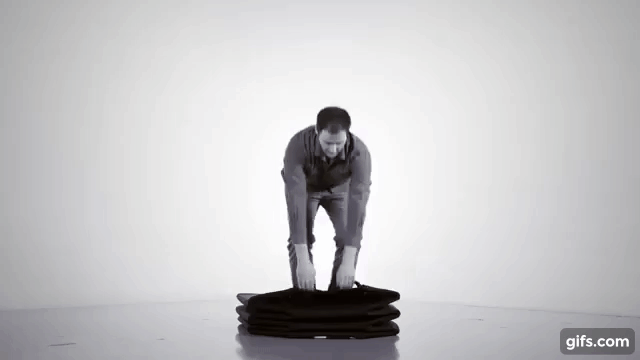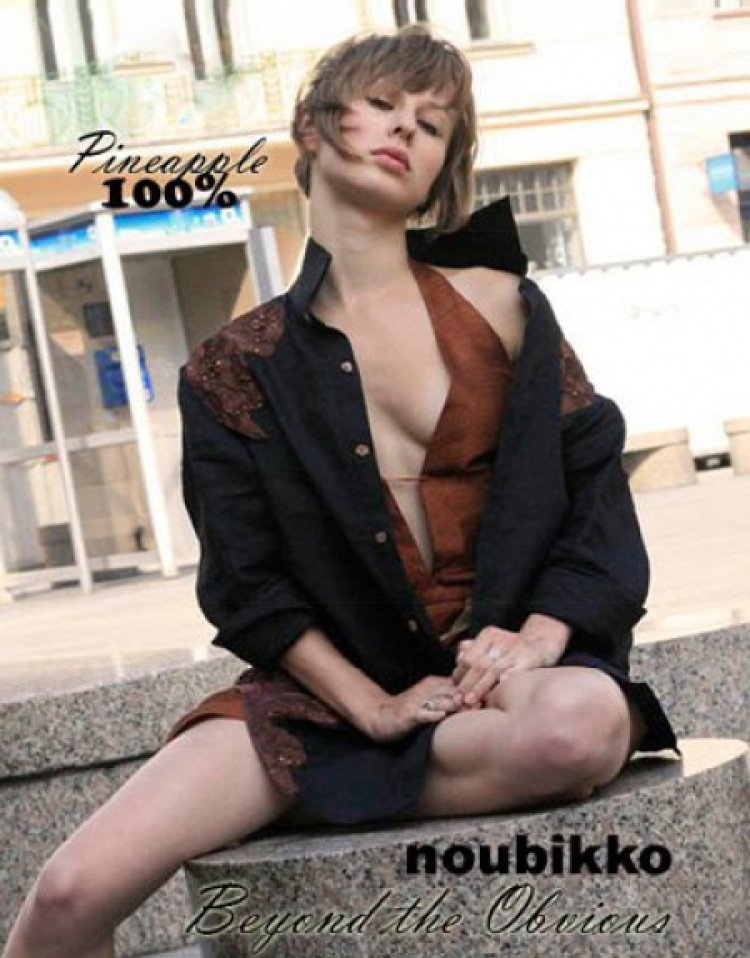Twilight of the Warriors: Walled In
It’s hard to imagine that this summer will see a better crowd-pleaser than “Twilight of the Warriors: Walled In,” a nostalgic Hong Kong action spectacular featuring the year’s most thrilling action filmmaking. Unbound by physics or any sense of psychological realism, “Twilight of the Warriors: Walled In” is also probably the best comic book adaptation you’ll see this year, featuring a murderer’s row of Hong Kong stars like Louis Koo, Aaron Kwok and Sammo Hung, and featuring the sort of intricate maximalist production design that puts most other blockbusters to shame. On its face, “Twilight of the Warriors: Walled In” is a conventional us-against-them crime saga about Chan Lok-kwun (Raymond Lam), a luckless refugee who settles down in Kowloon, the dystopian-looking tenement city of the movie’s title. Chan’s allies treat each other like family despite some mischievous double-dealing and back-biting; his enemies only think of themselves. Chan’s story, all about a community’s triumph over mobbed-up individualism, has already found a receptive audience in Hong Kong, where “Twilight of the Warriors: Walled In” is already the most-watched local production of all time. The movie’s reputation will likely continue to grow thanks to its lyrical pulp fiction dialogue, credited to four screenwriters, and its over-the-top fight choreography. “Twilight of the Warriors: Walled In” was custom-made to knock you on your ass, and while it’s sometimes a little too desperate to please, it’s also hard to resist a genre movie that works so hard to impress all comers. The movie version of Kowloon resembles an animated M.C. Escher painting, filled with overlapping stairwells, choked with rebar, and overstuffed with low-drooping cables that bulge and creep over steam vents and crater-pocked concrete. Paint doesn’t peel off the walls so much as it accretes, one eggshell-thin layer on top of the other. Steam floats above the aluminum eaves but never seems to escape. This movie’s Kowloon is a haven for kind-hearted degenerates like Cyclone (Koo), a barber and the city’s revered crime boss, as well as supporting characters like the media-obsessed AV (German Cheung) and his stalwart companions Twelfth Master (Tony Tsz-Tung Wu) and Shin (Terrance Lau). Their messy but stable microcosm is threatened by Chan, a desperate loner who only wants to make enough money to buy a fake ID. Chan is followed by the greedy triad gang boss, Mr. Big (Hung), and his flamboyant second-in-command, King (Philip Ng). Everybody knows how to fight and they all have garish wigs and costumes that scream mid-to-late ‘80s. Most of the first half of “Twilight of the Warriors: Walled In” sets up the inevitable clash between Mr. Big and Cyclone’s respective gangs. There’s a little mystery surrounding Chan’s identity, but it’s not as memorable as the movie’s action scenes, which feature the sort of manic energy that one might expect from a comic book movie. In an early scene, Cyclone flicks his cigarette into the air, executes some disarming moves, and then reclaims his butt before gravity can. This sort of fantastic establishing scene prepares viewers for later fights, including maneuvers like a “spirit shield” and beat-em-up video game-ready weapons like sledgehammers and lead pipes. The fights in “Twilight of the Warriors: Walled In” are so thrilling I had to double-check to confirm that action god Sammo Hung didn't choreograph them himself. That credit’s owed to Kenji Tanigaki, who also served as the action director for “Sakra,” last year’s Donnie Yen-helmed wuxia action fantasy. Here, Tanigaki and his stunt team are working on a bigger scale than their usual collaborations with Yen, and the results are even more exciting given the complementary efforts of director of photography Siu-Keung Cheng, production designer Kwok-Keung Mak, and a team of computer animators. Moreover, director Soi Cheang specializes in this sort of half-squalid, half-romantic city symphony, having previously directed both big-budget action fantasies, like “The Monkey King,” starring Donnie Yen, and its two sequels (which swap Yen out for Aaron Kwok), and gorgeous/seedy neo-noirs like “Dog Bite Dog” and “Limbo.” Cheang synthesizes his career’s work to date in “Twilight of the Warriors: Walled In,” the kind of movie where a man only credited as “Woman Beater” (Chu Pak Hon) attacks a prostitute (Fish Liew) and then gets aired out by Chan and his buddies, who each hold one of their opponent’s limbs and then repeatedly bash him into the ground like a dirty bedsheet. The myth of the city as a kinder but not gentler home for outsiders is irresistible here, given the well-oiled collaboration between Cheang and his crew members, some of whom have been working together for years now. The filmmakers’ passion is infectious, and as a result, “Twilight of the Warriors: Walled In” is a once-in-a-while assembly of talent that will make even the most hardened skeptic agree—this one’s worth the hype.


It’s hard to imagine that this summer will see a better crowd-pleaser than “Twilight of the Warriors: Walled In,” a nostalgic Hong Kong action spectacular featuring the year’s most thrilling action filmmaking. Unbound by physics or any sense of psychological realism, “Twilight of the Warriors: Walled In” is also probably the best comic book adaptation you’ll see this year, featuring a murderer’s row of Hong Kong stars like Louis Koo, Aaron Kwok and Sammo Hung, and featuring the sort of intricate maximalist production design that puts most other blockbusters to shame.
On its face, “Twilight of the Warriors: Walled In” is a conventional us-against-them crime saga about Chan Lok-kwun (Raymond Lam), a luckless refugee who settles down in Kowloon, the dystopian-looking tenement city of the movie’s title. Chan’s allies treat each other like family despite some mischievous double-dealing and back-biting; his enemies only think of themselves.
Chan’s story, all about a community’s triumph over mobbed-up individualism, has already found a receptive audience in Hong Kong, where “Twilight of the Warriors: Walled In” is already the most-watched local production of all time. The movie’s reputation will likely continue to grow thanks to its lyrical pulp fiction dialogue, credited to four screenwriters, and its over-the-top fight choreography. “Twilight of the Warriors: Walled In” was custom-made to knock you on your ass, and while it’s sometimes a little too desperate to please, it’s also hard to resist a genre movie that works so hard to impress all comers.
The movie version of Kowloon resembles an animated M.C. Escher painting, filled with overlapping stairwells, choked with rebar, and overstuffed with low-drooping cables that bulge and creep over steam vents and crater-pocked concrete. Paint doesn’t peel off the walls so much as it accretes, one eggshell-thin layer on top of the other. Steam floats above the aluminum eaves but never seems to escape.
This movie’s Kowloon is a haven for kind-hearted degenerates like Cyclone (Koo), a barber and the city’s revered crime boss, as well as supporting characters like the media-obsessed AV (German Cheung) and his stalwart companions Twelfth Master (Tony Tsz-Tung Wu) and Shin (Terrance Lau). Their messy but stable microcosm is threatened by Chan, a desperate loner who only wants to make enough money to buy a fake ID. Chan is followed by the greedy triad gang boss, Mr. Big (Hung), and his flamboyant second-in-command, King (Philip Ng). Everybody knows how to fight and they all have garish wigs and costumes that scream mid-to-late ‘80s.
Most of the first half of “Twilight of the Warriors: Walled In” sets up the inevitable clash between Mr. Big and Cyclone’s respective gangs. There’s a little mystery surrounding Chan’s identity, but it’s not as memorable as the movie’s action scenes, which feature the sort of manic energy that one might expect from a comic book movie. In an early scene, Cyclone flicks his cigarette into the air, executes some disarming moves, and then reclaims his butt before gravity can. This sort of fantastic establishing scene prepares viewers for later fights, including maneuvers like a “spirit shield” and beat-em-up video game-ready weapons like sledgehammers and lead pipes.
The fights in “Twilight of the Warriors: Walled In” are so thrilling I had to double-check to confirm that action god Sammo Hung didn't choreograph them himself. That credit’s owed to Kenji Tanigaki, who also served as the action director for “Sakra,” last year’s Donnie Yen-helmed wuxia action fantasy. Here, Tanigaki and his stunt team are working on a bigger scale than their usual collaborations with Yen, and the results are even more exciting given the complementary efforts of director of photography Siu-Keung Cheng, production designer Kwok-Keung Mak, and a team of computer animators.
Moreover, director Soi Cheang specializes in this sort of half-squalid, half-romantic city symphony, having previously directed both big-budget action fantasies, like “The Monkey King,” starring Donnie Yen, and its two sequels (which swap Yen out for Aaron Kwok), and gorgeous/seedy neo-noirs like “Dog Bite Dog” and “Limbo.” Cheang synthesizes his career’s work to date in “Twilight of the Warriors: Walled In,” the kind of movie where a man only credited as “Woman Beater” (Chu Pak Hon) attacks a prostitute (Fish Liew) and then gets aired out by Chan and his buddies, who each hold one of their opponent’s limbs and then repeatedly bash him into the ground like a dirty bedsheet.
The myth of the city as a kinder but not gentler home for outsiders is irresistible here, given the well-oiled collaboration between Cheang and his crew members, some of whom have been working together for years now. The filmmakers’ passion is infectious, and as a result, “Twilight of the Warriors: Walled In” is a once-in-a-while assembly of talent that will make even the most hardened skeptic agree—this one’s worth the hype.




















